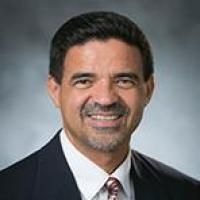A framework for revising preservice curriculum for nonphysician clinicians: The mozambique experience.
Date
2014-09
Journal Title
Journal ISSN
Volume Title
Repository Usage Stats
views
downloads
Citation Stats
Abstract
Mozambique, with approximately 0.4 physicians and 4.1 nurses per 10,000 people, has one of the lowest ratios of health care providers to population in the world. To rapidly scale up health care coverage, the Mozambique Ministry of Health has pushed for greater investment in training nonphysician clinicians, Tιcnicos de Medicina (TM). Based on identified gaps in TM clinical performance, the Ministry of Health requested technical assistance from the International Training and Education Center for Health (I-TECH) to revise the two-and-a-half-year preservice curriculum. A six-step process was used to revise the curriculum: (i) Conducting a task analysis, (ii) defining a new curriculum approach and selecting an integrated model of subject and competency-based education, (iii) revising and restructuring the 30-month course schedule to emphasize clinical skills, (iv) developing a detailed syllabus for each course, (v) developing content for each lesson, and (vi) evaluating implementation and integrating feedback for ongoing improvement. In May 2010, the Mozambique Minister of Health approved the revised curriculum, which is currently being implemented in 10 training institutions around the country. Key lessons learned: (i) Detailed assessment of training institutions' strengths and weaknesses should inform curriculum revision. (ii) Establishing a Technical Working Group with respected and motivated clinicians is key to promoting local buy-in and ownership. (iii) Providing ready-to-use didactic material helps to address some challenges commonly found in resource-limited settings. (iv) Comprehensive curriculum revision is an important first step toward improving the quality of training provided to health care providers in developing countries. Other aspects of implementation at training institutions and health care facilities must also be addressed to ensure that providers are adequately trained and equipped to provide quality health care services. This approach to curriculum revision and implementation teaches several key lessons, which may be applicable to preservice training programs in other less developed countries.
Type
Department
Description
Provenance
Citation
Permalink
Published Version (Please cite this version)
Publication Info
Freistadt, Fernanda, Erin Branigan, Chris Pupp, Marzio Stefanutto, Carlos Bambo, Maria Alexandre, Sandro O Pinheiro, Ruth Ballweg, et al. (2014). A framework for revising preservice curriculum for nonphysician clinicians: The mozambique experience. Educ Health (Abingdon), 27(3). pp. 283–288. 10.4103/1357-6283.152190 Retrieved from https://hdl.handle.net/10161/10761.
This is constructed from limited available data and may be imprecise. To cite this article, please review & use the official citation provided by the journal.
Collections
Scholars@Duke

Sandro Pinheiro de Oliveira
Dr. Pinheiro directs faculty development activities for clinical and basic science faculty, designs medical and interprofessional education curricula, coaches/mentors medical faculty and fellows, and conducts evaluation and research in medical and interprofessional education. His educational competencies are in the areas of adult learning, instructional strategies, active learning, curriculum design and evaluation, and qualitative inquiry. His research activities focus on medical and interprofessional education and the assessment of change in the teaching practice of clinical instructors.
Unless otherwise indicated, scholarly articles published by Duke faculty members are made available here with a CC-BY-NC (Creative Commons Attribution Non-Commercial) license, as enabled by the Duke Open Access Policy. If you wish to use the materials in ways not already permitted under CC-BY-NC, please consult the copyright owner. Other materials are made available here through the author’s grant of a non-exclusive license to make their work openly accessible.
